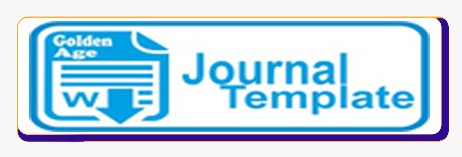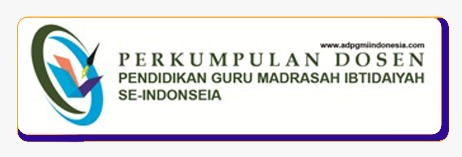A MODEL OF RELIGIOUS CHARACTER DEVELOPMENT THROUGH TEACHER, PARENTS AND COMMUNITY COOPERATION AT MI NURUS SHIBYAN PAMEKASAN
 Abstract views: 106
,
Abstract views: 106
,
 pdf downloads: 91
pdf downloads: 91
Abstract
Character education is important for human life, so the role played by the world of education must not only show knowledge. The process of forming religious character is the responsibility of all parties, including teachers, parents and society. This study aims to describe how the model for fostering students' religious character is through the collaboration of teachers, parents, and the community at MI Nurus Shibyan. The method used is qualitative descriptive method. The data used are primary and secondary data. Data was extracted through three ways, observation, interviews and documentation. The results of this study indicate that the religious character development model that is applied is the existence of religious extracurricular activities, the cultivation of good morals, guidance of manners. character building, through the collaboration of parents and the community, which includes several things as a form of support, including holding routine meetings every week, forming and disseminating school regulations, forming a cooperative organization between schools and parents, home visits, receiving visits from parents students, WA group collaboration, providing counseling services at school.
Downloads
References
Alwathoni, M., Saputro, S., Yamtinah. S., Masykuri, M., 2020. The Chemical Literacy Understanding of Chemistry Teachers at Islamic Senior High School. In International Journal of Science and Applied Science: Conference Series, Vol. 4 No. 1 Hal. 32-43
Antoro., Billy., Muldian., Wien., 2015. Buku Saku Gerakan Literasi Sekolah. Ditjen Dikdasmen Kemendikbud: Direktorat Jenderal Pendidikan Dasar dan Menengah
Arikunto, S. 2016. Prosedur Penelitian Suatu Pendekatan Praktik. Jakarta: Rineka Cipta
Arnyana, Ida BP. 2019. Pembelajaran Untuk Meningkatkan Kompetensi 4C (Communication, Collaboration, Critical Thinking dan Creative Thinking) Untukmenyongsong Era Abad 21. Prosiding: Konferensi Nasional Matematika dan IPA Universitas PGRI Banyuwangi. Vol.1 No.1
Balqis, A. F., Ananda, E. R., Wanindi, R.R., Shofia, W., 2021. Analisis Faktor Minimnya Minat Membaca Siswa di Kelas VI SDIT Daarul Istiqlal Kecamatan Patumbak Kabupaten Deli Serdang. Jurnal SEJ (School Education Journal). Vol. 11 No. 3. 250-255
Faizah, D., Sufyadi, S., Anggraini, L., Waluyo., Dewayani S., Muldian, W., Roosaria. D.R., 2016. Panduan Gerakan Literasi Sekolah di Sekolah Dasar. Direktorat Jenderal Pendidikan Dasar dan Menengah: Kementerian Pendidikan dan Kebudayaan
Hayun, Muhammad., Haryati, Tuti., 2020. Program Gerakan Literasi Sekolah (GLS) dalam Meningkatkan Kecerdasan Linguistik Siswa SD Lab School FIP UMJ. Yaa Bunayya : Jurnal Pendidikan Anak Usia Dini. Vol.4 No.1. 79-89
Iyok, Minawati. 2021. Optimalisasi Perpustakaan Sebagai Sumber Belajar di SD Negeri 08 Marong. Jurnal Pendidikan Bahasa, Vol. 10, No. 2. Hal. 254-260
Kemdikbud. 2016. Pedoman Pelaksanaan Gerakan Nasional Literasi Bangsa. Pusat Pembinaan Badan Pengembangan dan Pembinaan Bahasa
Kemdikbud. 2017. Implementasi Pengembangan Kecakapan Abad 21 dalam Perencanaan Pelaksanaan Pembelajaran (RPP). Dit. PSMA Ditjen.Pendidikan Dasar dan Menengah
Kharizmi, Muhammad. 2019. Kesulitan Siswa Sekolah Dasar dalam Meningkatkan Kemampuan Literasi. Jupendas: Jurnal Pendidikan Dasar, Vol. 2, no. 2, 2015
Koestiyati, A. (2020). Pengaruh Kegiatan Kelompok Kerja Guru dan Supervisi Akademik Terhadap Kinerja Guru Sekolah Dasar di Gugus Wijaya Kusuma Kecamatan Ngaliyan Kota Semarang. Vol. 2507, Issue February
Prihadi, Edi. 2018. Pengembangan Keterampilan 4C Melalui Metode Poster Comment pada Mata Pelajaran PAI dan Budi Pekerti (Penelitian di SMA Negeri 26 Bandung). Jurnal Pendidikan Islam Rabbani. Vo.2. No.1. 464-479
Sari, E. S., & Pujiono, S. 2017. Budaya Literasi di Kalangan Mahasiswa FBS UNY. Jurnal Litera. Vol.16 No.1, Hal.105-113
Sa’ud, U. S., 2008. Inovasi Pendidikan. Bandung: Alfabeta
Mubtadi: Jurnal pendidikan ibtidaiyah, adalah jurnal yang tidak berbasis komersial. tetapi memberikan lisensi kepada penulis atas karyanya. naskah penulis yang sudah di muat dapat dibuka oleh siapapun dan dapat diperguanakn oleh siapapun dengan catatan berbagi informasi tanpa dipungut baiaya apapun.



.jpg)










